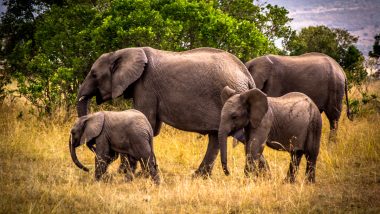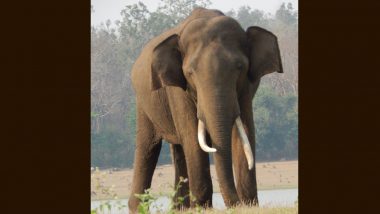The largest and most impressive of all the animals that live on and around the Great White Mountain—Mount Kilimanjaro is the elephant. Images of these great beasts with Kilimanjaro’s white summit as the backdrop are world-renowned. The animals have long lured throngs of wildlife-lovers to Amboseli National Park on Kenya’s border with Tanzania. However, the wildlife seems to be under threat—from avocados! According to reports, a Kenyan agricultural company with farms near Amboseli is planning to build nurseries and prepare to grow the fruit. However, conservationists fear that the fruit plantation and electric fence on the farm will block the animals’ movements. Elephants vs avocados have become a battle of the economy in Kenya.
With Mount Kilimanjaro commanding a boundless sky, below it, there is a palette of habitat from plains to the thorny bush. Among it all, about 2,000 elephants and all manner of wildlife, including zebra, wildebeest, lion and antelope, come and go. The Amboseli ecosystem in Kenya is one of Africa’s most familiar landscapes, and it is a tourist smash hit. Avocados are increasingly popular around the world. With its ideal growing conditions in Kenya, farmers are keen to cash in legitimately.
Kenyan agricultural company KiliAvo Fresh Ltd, is building nurseries and preparing to grow the fruit, but conservationists are against it. According to them, the plans and an electric fence on the farm will block the Kimana Wildlife Corridor, where elephants move between Amboseli, the Tsavo and Cyulu Hills parks. KiliAvo has reportedly obtained the land legally presenting an Environmental Impact Assessment (EIA) to begin work. Local people are happy too, as it is another source of employment. However, the National Environment Management Agency challenged the EIA, which has now halted the work.
Vicki Fishlock, a scientist, working for the Amboseli Elephant Trust group, was quoted in Reuters saying, “We can’t just say to the elephants: ‘Would you mind not going that way because we have decided that we are going to do stuff here?’” Samuel Kaanki, who chairs an association of 342 Maasai owning 20,500 acres where elephants reside, noted that the animals, if blocked by farms, would seek alternative routes which would result in “massive human-wildlife conflicts.”
Conservationists further add that if the elephants are trapped in one place, their population will collapse. They fear the Maasai way of life, and the sight of elephants beneath Mount Kilimanjaro could be gone forever.
(The above story first appeared on LatestLY on Mar 04, 2021 01:22 PM IST. For more news and updates on politics, world, sports, entertainment and lifestyle, log on to our website latestly.com).













 Quickly
Quickly




















